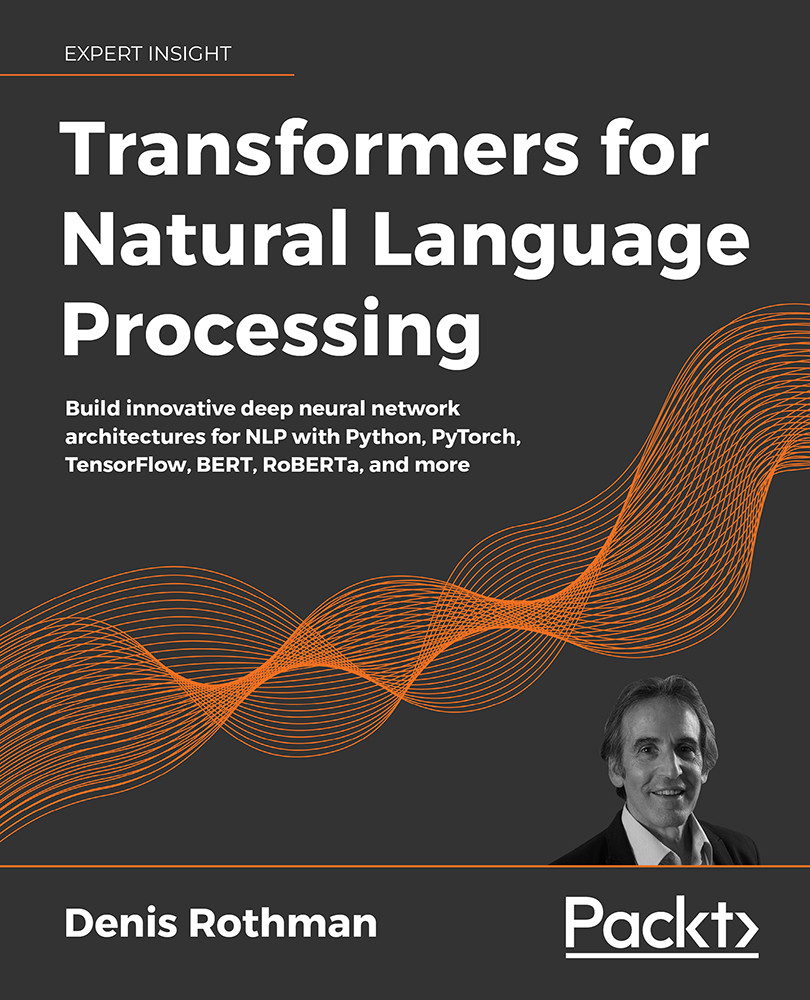-
Book Overview & Buying

-
Table Of Contents

Transformers for Natural Language Processing
By :

Transformers for Natural Language Processing
By:
Overview of this book
The transformer architecture has proved to be revolutionary in outperforming the classical RNN and CNN models in use today. With an apply-as-you-learn approach, Transformers for Natural Language Processing investigates in vast detail the deep learning for machine translations, speech-to-text, text-to-speech, language modeling, question answering, and many more NLP domains with transformers.
The book takes you through NLP with Python and examines various eminent models and datasets within the transformer architecture created by pioneers such as Google, Facebook, Microsoft, OpenAI, and Hugging Face.
The book trains you in three stages. The first stage introduces you to transformer architectures, starting with the original transformer, before moving on to RoBERTa, BERT, and DistilBERT models. You will discover training methods for smaller transformers that can outperform GPT-3 in some cases. In the second stage, you will apply transformers for Natural Language Understanding (NLU) and Natural Language Generation (NLG). Finally, the third stage will help you grasp advanced language understanding techniques such as optimizing social network datasets and fake news identification.
By the end of this NLP book, you will understand transformers from a cognitive science perspective and be proficient in applying pretrained transformer models by tech giants to various datasets.
Table of Contents (16 chapters)
Preface
Getting Started with the Model Architecture of the Transformer
 Free Chapter
Free Chapter
Fine-Tuning BERT Models
Pretraining a RoBERTa Model from Scratch
Downstream NLP Tasks with Transformers
Machine Translation with the Transformer
Text Generation with OpenAI GPT-2 and GPT-3 Models
Applying Transformers to Legal and Financial Documents for AI Text Summarization
Matching Tokenizers and Datasets
Semantic Role Labeling with BERT-Based Transformers
Let Your Data Do the Talking: Story, Questions, and Answers
Detecting Customer Emotions to Make Predictions
Analyzing Fake News with Transformers
Other Books You May Enjoy
Index
Appendix: Answers to the Questions
